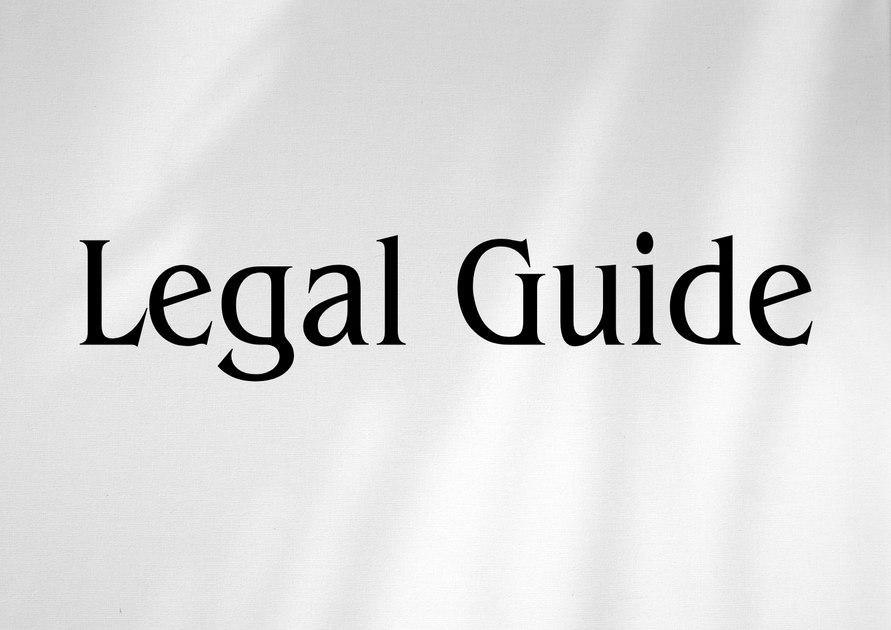Introduction: Navigating Business Law in Qatar – Why Compliance Matters More Than Ever
The economic landscape of Qatar has evolved rapidly in recent years, positioning the country as a regional leader for investment and entrepreneurial opportunity. As the nation continues its trajectory towards diversification under the Qatar National Vision 2030, the legal obligations for business owners have become increasingly complex and consequential. Recent legal updates and reforms—mirroring a broader trend across the GCC—underscore the importance for current and potential business operators, especially those with interests in the UAE, to remain vigilant and informed about their responsibilities. This in-depth legal advisory article, crafted for executives, business owners, HR managers, and legal practitioners, demystifies the core legal responsibilities for business owners in Qatar, offering practical guidance, risk analysis, and professional best practices to ensure resilient, compliant, and future-proof operations.
The significance of this topic is heightened by Qatar’s strategic role in the region, ongoing clarifications related to foreign direct investment, stricter company law enforcement, and the adoption of new labor, anti-money laundering, data protection, and commercial regulations. Understanding these evolving duties is crucial not only for compliance, but also for safeguarding business continuity, reputation, and growth in a highly regulated business environment.
Table of Contents
- Legal Framework Overview: Core Laws Governing Business in Qatar
- Commercial Companies Law and Business Formation Responsibilities
- Corporate Governance, Director Obligations, and Shareholder Rights
- Labor Law and Employment Obligations for Employers
- AML and Counter-Terrorism Compliance
- Data Protection and Privacy Responsibilities
- Taxation and Financial Reporting Duties
- Risks of Non-Compliance and Penalties
- Compliance Strategies and Proactive Risk Management
- Conclusion: Key Takeaways and Future Outlook
Legal Framework Overview: Core Laws Governing Business in Qatar
Understanding the Backbone of Qatari Business Law
Qatar’s business operations are regulated by an interconnected set of statutes and government decrees aimed at promoting transparency, fairness, and sustainable development. The principal sources of business law in Qatar include:
- Commercial Companies Law (Law No. 11 of 2015, as amended by Law No. 8 of 2021)
- Labour Law (Law No. 14 of 2004, as amended)
- Anti-Money Laundering and Counter-Terrorism Financing Law (Law No. 20 of 2019)
- Personal Data Privacy Protection Law (Law No. 13 of 2016)
- Qatar Financial Centre Regulations and the new Investment Laws
In addition to these federal/statutory laws, ministerial resolutions, circulars from the Ministry of Commerce and Industry, Qatar Financial Centre Regulatory Authority, and sectoral regulators provide specific compliance mandates.
Why Legal Compliance is Critical for UAE-Based Interests
With legal reforms echoing trends seen in the UAE—such as increased scrutiny over ownership disclosure, stricter labor enforcement, and heightened penalties for violations—Qatar’s legal landscape is highly relevant for UAE-based investors, cross-border operators, and multinational corporations. Enforcement agencies have signaled stricter implementation for 2024 and beyond, following regional best practices for good governance.
For official guidance, businesses should consult the Qatar e-Government Portal, Ministry of Justice, and sectoral regulator websites.
Commercial Companies Law and Business Formation Responsibilities
Key Statutory Duties under the Commercial Companies Law (Law No. 11 of 2015, as Amended)
Qatar’s Companies Law lays the foundation for the creation, governance, and operation of commercial entities. Recent amendments (Law No. 8 of 2021) have introduced stricter requirements for transparency, corporate structure, and foreign ownership.
Types of Business Entities and Registration Duties
- Limited Liability Companies (LLCs)
- Joint-Stock Companies (public/private)
- Partnerships and Branches of Foreign Companies
Each entity type imposes specific formation, registration, and ongoing compliance duties—including maintaining Shareholder Registers, timely General Assemblies, and submission of annual accounts.
Stepwise Responsibilities for Business Formation
- Name Reservation and Capital Deposit: Names must be reserved via the Ministry of Commerce and Industry; minimum capital requirements apply (subject to legal entity type).
- Memorandum and Articles of Association: Must be drafted, notarized, and submitted with registration documents.
- Commercial Registration (CR): A company must obtain a valid CR before conducting any business activities, per Article 94 of the Law.
- Licensing and Regulatory Approvals: Specific sectors (e.g., finance, healthcare, construction) require further licensing from line ministries/regulators.
Comparison of Old vs. New Companies Law Requirements
| Area | Earlier Law Requirements | Post-2021 Amendments |
|---|---|---|
| Foreign Ownership | Max 49% foreign stakes (exceptions apply) | Up to 100% in most sectors (upon approval) |
| Annual General Meeting | Some reporting flexibility | Mandatory timely meetings; stricter quorum and notice rules |
| Disclosure | Basic Registers | Ultimate Beneficial Owner (UBO) registers required for all companies |
| Penalties | Lesser fines, rare suspension | Heavier administrative penalties, risk of business closure |
Consultancy Perspective: Practical Implications and Risk Mitigation
Business owners must prioritise prompt, accurate documentation, establish strong internal controls, and stay vigilant for statutory updates. Failing to align with the latest Company Law exposes entities to administrative suspension, monetary penalties, and reputational harm.
Case Example: The Impact of UBO Disclosure Requirements
Case Study: A multinational firm with subsidiaries in Qatar was penalized in 2023 for failing to update its UBO register following a change in board composition. The penalty included a significant fine and temporary trading suspension, highlighting the operational risk of delayed compliance.
Corporate Governance, Director Obligations, and Shareholder Rights
Legal Duties of Directors and Managers
The Companies Law imposes rigorous standards of good faith, due diligence, and loyalty on directors and managers. These fiduciary obligations often extend to company officers and, in certain cases, senior management.
- Duties to the Company: Act in the best interest of the company, avoid conflicts of interest, and exercise oversight over financial statements, risk management, and compliance functions.
- Duties to Shareholders: Ensure timely disclosure, equitable treatment, and transparent communication during AGMs, capital increases, and mergers.
Recent Legal Developments Affecting Governance
Amendments have clarified personal liability for breaches, increased obligations for related-party transaction disclosures, and extended criminal liability for certain compliance failures.
Table: Director Duties and Comparison to Pre-Amendment Regime
| Director Duty | Old Law Practice | Post-Amendment Practice |
|---|---|---|
| Duty of Loyalty | Express but loosely enforced | Enhanced, specific prohibitions on conflict of interest |
| Disclosure | Periodic statements | Detailed continuous disclosure; UBO transparency |
| Personal Liability | Limited to certain violations | Expanded to include financial and AML violations |
Practical Insights and Proactive Steps
Directors should maintain robust documentation for all board and shareholder decisions, institute conflict-of-interest policies, and regularly review statutory registers and disclosures. Comprehensive D&O (Directors and Officers) insurance is recommended as a risk mitigation tool.
Labor Law and Employment Obligations for Employers
Key Requirements under Law No. 14 of 2004 (as Amended)
Employment relationships in Qatar are principally governed by the Labour Law, which outlines mandatory provisions for contracts, workplace safety, discrimination, wages, and termination. Recent amendments have strengthened provisions for worker mobility, allowed non-compete clauses, and increased wage protection rules.
- Employment Contracts: Every employee must have a written contract; certain terms (probation, end-of-service benefits, notice periods) are mandatory.
- Wage Protection System (WPS): Employers must pay wages via bank transfer through the Ministry-approved WPS, ensuring regularity and traceability.
- Working Conditions: Minimum standards for health, safety, and non-discriminatory practices are strictly enforced.
- Termination and Redundancy: Lawful dismissals require just cause and appropriate notice; workers are entitled to severance payments under specified conditions.
Comparison Table: Landmark Labor Law Amendments
| Aspect | Prior to Amendments (pre-2020) | Current Law |
|---|---|---|
| Exit Permits | Required for expatriates | Many categories exempt; easier termination for both parties |
| Minimum Wage | Not codified | Statutory minimum wage implemented (from 2021) |
| Worker Mobility | Highly restricted | Greater job mobility; simplified system to change employment |
Consultancy Notes: Application and Risk Areas
Employers must not only provide compliant contracts, but also implement robust HR procedures for onboarding, leave management, and end-of-service benefit calculations. Non-compliance exposes owners and managers to administrative fines, business suspensions, and—in egregious cases—criminal prosecution.
Case Example: WPS Non-Compliance
Scenario: A hospitality company failed to process staff payroll through the WPS, resulting in wage delays. Authorities froze business bank accounts and imposed a QAR 50,000 penalty, with additional risk of license suspension for repeat violations.
AML and Counter-Terrorism Compliance
Legal Mandate under Law No. 20 of 2019 (AML/CTF Law)
The fight against money laundering and terrorism financing is a cornerstone of Qatari and GCC compliance. The current AML/CFT law, introduced in 2019 and strengthened by subsequent guidance, sets wide-ranging duties for all businesses—especially in financial, professional, and real estate sectors.
- Mandatory customer due diligence (CDD/KYC), monitoring, and suspicious transaction reporting (STR)
- Internal policy development and staff training, particularly for designated non-financial businesses and professions (DNFBPs)
Consultancy Guidance: Building an Effective Compliance Program
Owners must appoint compliance officers, conduct internal audits, and report any suspicious transactions as mandated by the Qatar Financial Information Unit (QFIU). Legal action for failing AML duties can include fines exceeding QAR 1 million and criminal liability.
Table: Key Obligations and Penalties – AML/CTF
| Obligation | Compliance Steps | Penalty for Breach |
|---|---|---|
| KYC/CDD Procedures | Verify identity, maintain records | Fines, business closure |
| Transaction Monitoring | Ongoing, report STRs | Fines, criminal investigation |
| Policy & Training | Regular updates, staff training | Administrative penalties |
Data Protection and Privacy Responsibilities
Legal Foundation: Law No. 13 of 2016 (Personal Data Privacy Protection Law)
With the rise of digital business, data privacy has become a critical compliance requirement for all Qatari business owners. The Data Privacy Law regulates the collection, processing, and storage of personal data, drawing significant parallels to the EU’s GDPR in both scope and penalty structure.
- Consent Requirements: Explicit consent is required for most processing activities; clear privacy notices must be provided.
- Data Security: Adequate technical and organisational safeguards are mandated to prevent unauthorized access or breaches.
- Data Subject Rights: Individuals have rights to access, correct, and delete their personal data, as well as to opt out of direct marketing.
Table: Obligations and Breach Consequences – Data Privacy
| Obligation | Practical Requirement | Breach Consequence |
|---|---|---|
| Privacy Policy | Draft and communicate to all users | Fines, reputational harm |
| Security Measures | Implement IT controls, train staff | Liability for data loss |
| Consumer Rights | Manage consent, data deletion requests | Sanctions from the regulator |
Consultancy Recommendations
Appoint a Data Protection Officer where required, maintain up-to-date privacy policies, map data flows, and prepare a breach incident response plan. Regular audits are critical for compliance assurance.
Taxation and Financial Reporting Duties
Corporate Income Tax and Withholding Obligations
Subject to Law No. 24 of 2018 (Income Tax Law) and related ministerial decrees, all non-GCC-shareholder companies must pay 10% corporate income tax on taxable profits, file annual returns, and maintain comprehensive financial records. Personal income remains untaxed, but withholding taxes apply for certain payments to non-residents (royalties, technical fees, etc.).
- Annual Returns and Audited Financial Statements: Must be filed within four months after year-end to the General Tax Authority.
- VAT Readiness: While as of 2024, Qatar has not implemented VAT, regional harmonisation under the GCC VAT Framework Agreement is possible, making VAT readiness a key compliance area.
Table: Tax Filing Essentials and Penalties
| Requirement | Key Steps | Penalty for Default |
|---|---|---|
| Tax Return Filing | File by deadline, accurate data | QAR 500 penalty/month up to QAR 100,000 |
| Audit Submission | Appoint licensed auditor | Business suspension risk |
| Withholding Taxes | Correct deduction and remittance | Interest, additional fines |
Case Example: Missed Filing Deadline
Scenario: A retail distributor missed its tax filing deadline due to internal miscommunication. The General Tax Authority imposed continuous monthly fines until rectification, with notification of potential account freezing for ongoing non-compliance.
Risks of Non-Compliance and Penalties
Overview of Enforcement Mechanisms and Penalty trends
Across all major statutes, the Qatari authorities have markedly increased their enforcement activities, imposing stricter fines, business suspensions, and—under the AML and data privacy regimes—criminal investigations. Penalties are not merely administrative but, in certain sectors (e.g. financial, healthcare, real estate), include criminal prosecution and asset freezing orders.
Table: Common Non-Compliance Risks and Penalties
| Law/Area | Major Risk | Potential Penalty |
|---|---|---|
| Companies Law | UBO failure, AGM delay | Suspension, QAR 50,000–250,000 fine |
| Labour Law | Wage or safety violation | Business closure, QAR 10,000–60,000 per case |
| AML/CTF | Unreported suspicious activity | QAR 1m+ fine, criminal charges |
| Data Privacy | Data breach, lack of consent | Up to QAR 1m fine |
| Tax Law | Late filing, evasion | Interest, repeated monthly fines, prosecution |
Visual Suggestion:
Include an infographic summarizing penalty escalation: ‘Administrative fines → Suspension → Criminal prosecution’.
Compliance Strategies and Proactive Risk Management
Structuring a Robust Compliance Program
- Governance Framework: Establish clearly defined roles and responsibilities for compliance at board and senior management levels.
- Ongoing Monitoring: Institute regular legal audits and regulatory compliance checklists. Consider a semi-annual board review of all statutory registers and policies.
- Staff Training: Conduct mandatory annual compliance and ethics training, tailored to business sector risk exposure.
- Engagement with Legal Advisors: Maintain an ongoing relationship with UAE–Qatar qualified counsel for prompt statutory updates and risk advice.
- Digital Tools: Implement regulatory technology (RegTech) tools such as digital document management and automated statutory alert systems.
Table: Sample Compliance Checklist for Qatari Businesses
| Area | Key Task | Status |
|---|---|---|
| Companies Law | Update UBO Register | Completed / Pending |
| Labour Law | Review WPS salary files | Completed / Pending |
| AML | Conduct annual staff training | Completed / Pending |
| Data Privacy | Refresh Data Processing Policy | Completed / Pending |
| Tax | File annual return | Completed / Pending |
Visual Suggestion:
Provide a downloadable compliance checklist to guide business managers during internal audits.
Conclusion: Key Takeaways and Future Outlook
The legal responsibilities of business owners in Qatar continue to evolve—echoing regional shifts seen in the UAE and broader GCC—increasing the imperative for robust compliance frameworks and risk awareness. The move towards greater disclosure (particularly in UBO, AML, and data privacy), heightened director responsibility, and enhanced labor and tax enforcement, signals a stricter, more transparent regulatory era. Proactive compliance is not only a legal necessity but also a strategic advantage in maintaining operational resilience, business reputation, and investor trust.
Looking ahead, expected adoption of further digitalization, possible VAT introduction, and regional harmonization of commercial laws will shape the regulatory climate. Business owners should anticipate ongoing changes by partnering with trusted legal advisors, investing in compliance technology, and embedding a culture of continuous legal education at every level of their organizations.
Best Practices for 2024 and Beyond
- Schedule semi-annual legal audits and compliance reviews.
- Stay alert to official updates from the Ministry of Commerce and Industry, MOL, MOJ, and tax authorities.
- Invest in staff training and RegTech solutions to ease compliance burdens.
- Document all compliance steps taken to demonstrate a proactive approach in the event of an inspection or dispute.
By embracing these practices, business owners ensure both legal protection and the ability to respond swiftly and confidently to the dynamic business environment in Qatar and the wider Middle East.




